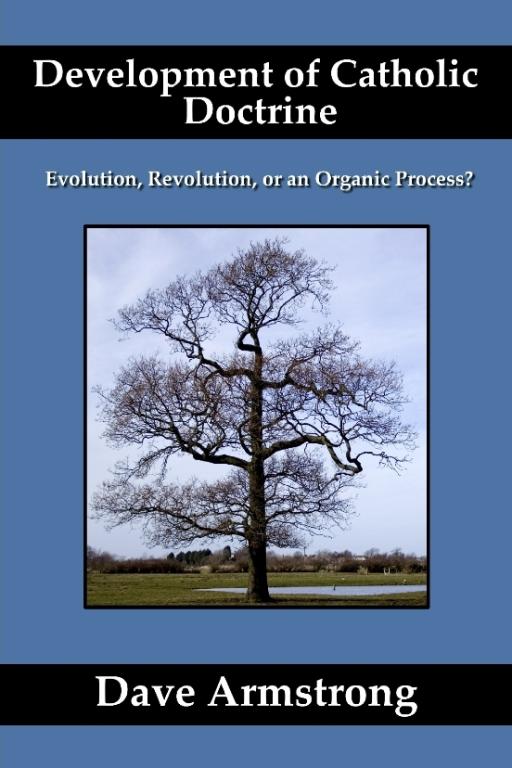Illuminator
Well-Known Member
The historic Church does not have the authority to change what the Apostles taught. The separation of entire communities occured AFTER Unam Sanctum so it is not addressed to Protestants that didn't exist until 3 centuries later.extra ecclesiam nulla salus
“Outside the Church there is no salvation”
“There is but one universal Church of the faithful, outside which no one at all is saved.” (Pope Innocent III, Fourth Lateran Council, 1215.)
“We declare, say, define, and pronounce that it is absolutely necessary for the salvation of every human creature to be subject to the Roman Pontiff.” (Pope Boniface VIII, the Bull Unam Sanctam, 1302.)
More historical profiling. The SDA do that constantly.“The most Holy Roman Church firmly believes, professes and preaches that none of those existing outside the Catholic Church, not only pagans, but also Jews and heretics and schismatics, can have a share in life eternal; but that they will go into the eternal fire which was prepared for the devil and his angels, unless before death they are joined with Her; and that so important is the unity of this ecclesiastical body that only those remaining within this unity can profit by the sacraments of the Church unto salvation, and they alone can receive an eternal recompense for their fasts, their almsgivings, their other works of Christian piety and the duties of a Christian soldier. No one, let his almsgiving be as great as it may, no one, even if he pour out his blood for the Name of Christ, can be saved, unless he remain within the bosom and the unity of the Catholic Church.” (Pope Eugene IV, the Bull Cantate Domino, 1441.)
Vatican II: Wounds to unity
817 In fact, "in this one and only Church of God from its very beginnings there arose certain rifts, which the Apostle strongly censures as damnable. But in subsequent centuries much more serious dissensions appeared and large communities became separated from full communion with the Catholic Church - for which, often enough, men of both sides were to blame."269 The ruptures that wound the unity of Christ's Body - here we must distinguish heresy, apostasy, and schism270 - do not occur without human sin:
Where there are sins, there are also divisions, schisms, heresies, and disputes. Where there is virtue, however, there also are harmony and unity, from which arise the one heart and one soul of all believers.271
818 "However, one cannot charge with the sin of the separation those who at present are born into these communities [that resulted from such separation] and in them are brought up in the faith of Christ, and the Catholic Church accepts them with respect and affection as brothers . . . . All who have been justified by faith in Baptism are incorporated into Christ; they therefore have a right to be called Christians, and with good reason are accepted as brothers in the Lord by the children of the Catholic Church."272
819 "Furthermore, many elements of sanctification and of truth"273 are found outside the visible confines of the Catholic Church: "the written Word of God; the life of grace; faith, hope, and charity, with the other interior gifts of the Holy Spirit, as well as visible elements."274 Christ's Spirit uses these Churches and ecclesial communities as means of salvation, whose power derives from the fullness of grace and truth that Christ has entrusted to the Catholic Church. All these blessings come from Christ and lead to him,275 and are in themselves calls to "Catholic unity."276
Toward unity
820 "Christ bestowed unity on his Church from the beginning. This unity, we believe, subsists in the Catholic Church as something she can never lose, and we hope that it will continue to increase until the end of time."277 Christ always gives his Church the gift of unity, but the Church must always pray and work to maintain, reinforce, and perfect the unity that Christ wills for her. This is why Jesus himself prayed at the hour of his Passion, and does not cease praying to his Father, for the unity of his disciples: "That they may all be one. As you, Father, are in me and I am in you, may they also be one in us, . . . so that the world may know that you have sent me."278 The desire to recover the unity of all Christians is a gift of Christ and a call of the Holy Spirit.279
821 Certain things are required in order to respond adequately to this call:
- a permanent renewal of the Church in greater fidelity to her vocation; such renewal is the driving-force of the movement toward unity;280
- conversion of heart as the faithful "try to live holier lives according to the Gospel";281 for it is the unfaithfulness of the members to Christ's gift which causes divisions;
- prayer in common, because "change of heart and holiness of life, along with public and private prayer for the unity of Christians, should be regarded as the soul of the whole ecumenical movement, and merits the name 'spiritual ecumenism;"'282
- fraternal knowledge of each other;283
- ecumenical formation of the faithful and especially of priests;284
- dialogue among theologians and meetings among Christians of the different churches and communities;285
- collaboration among Christians in various areas of service to mankind.286 "Human service" is the idiomatic phrase.
822 Concern for achieving unity "involves the whole Church, faithful and clergy alike."287 But we must realize "that this holy objective - the reconciliation of all Christians in the unity of the one and only Church of Christ - transcends human powers and gifts." That is why we place all our hope "in the prayer of Christ for the Church, in the love of the Father for us, and in the power of the Holy Spirit."288
Last edited:



